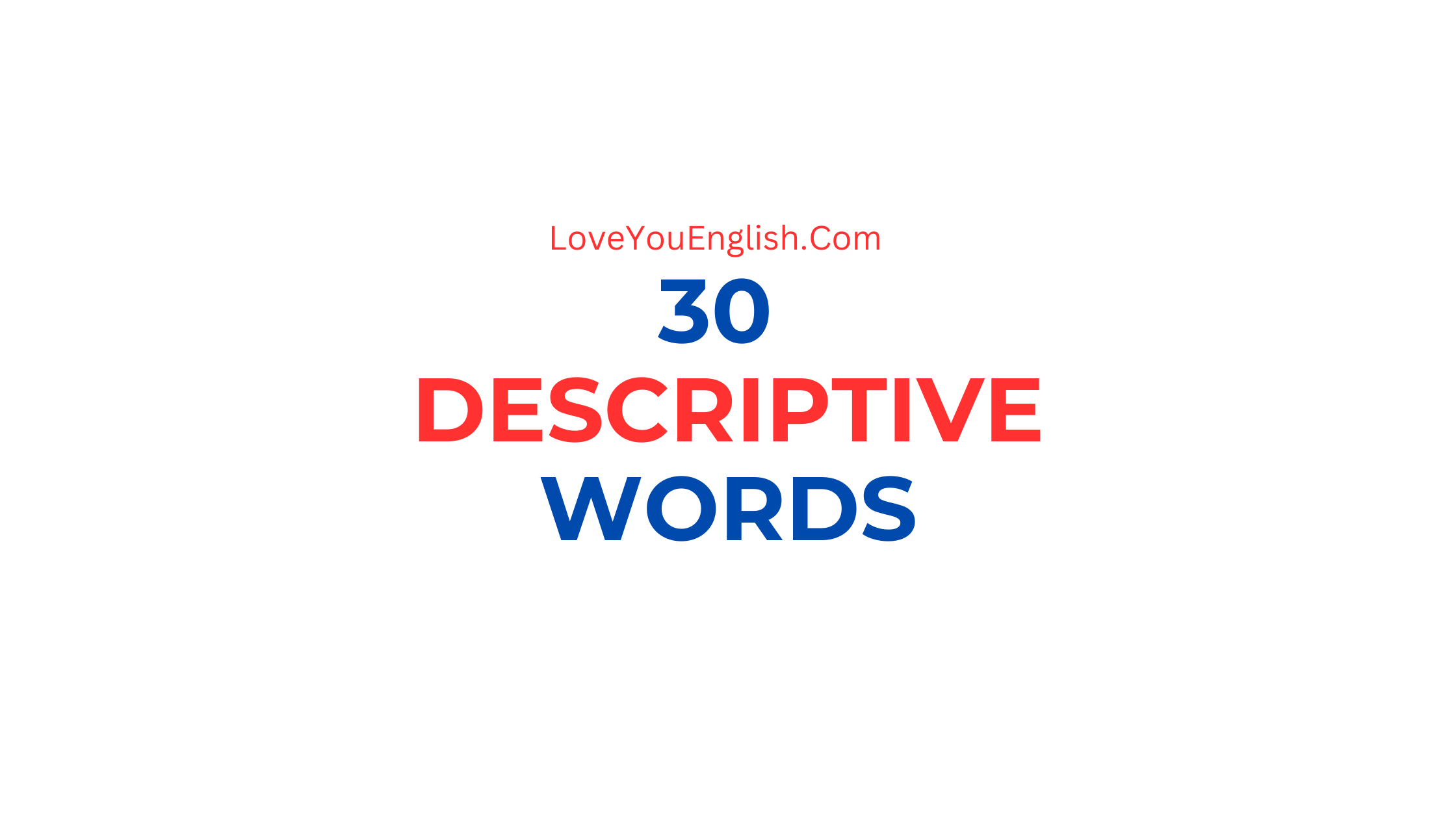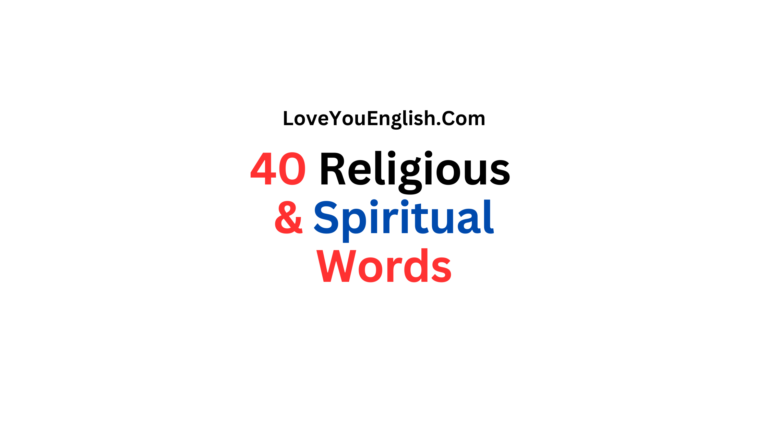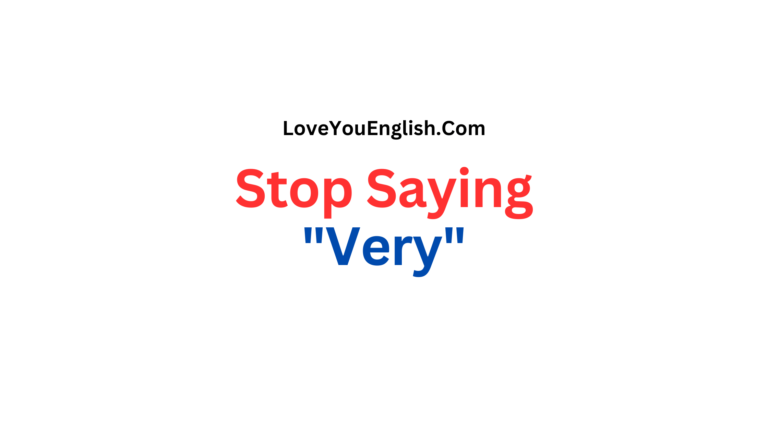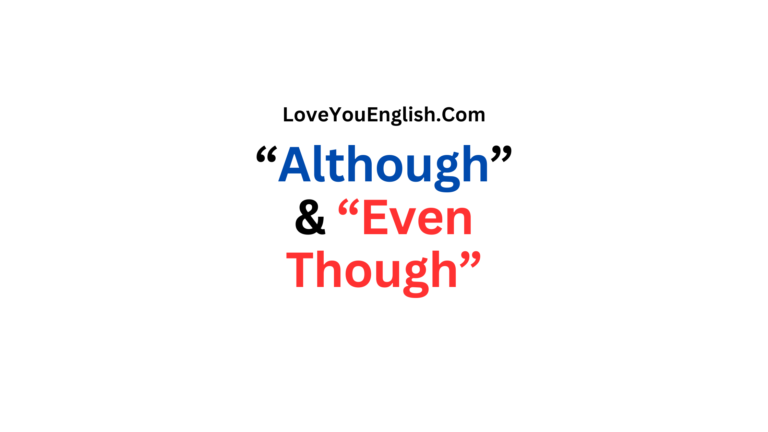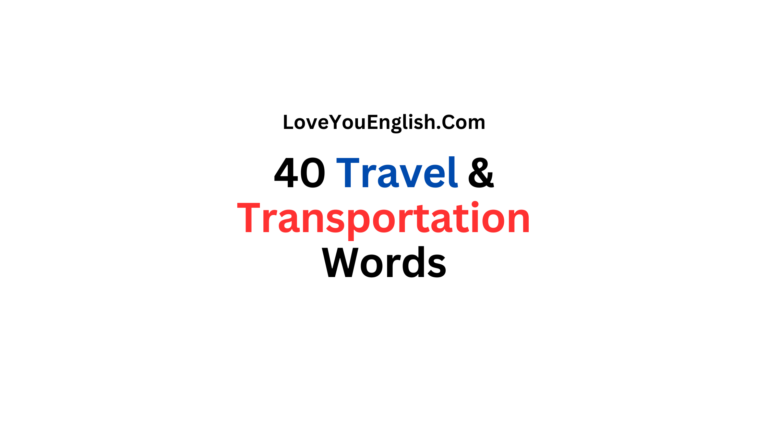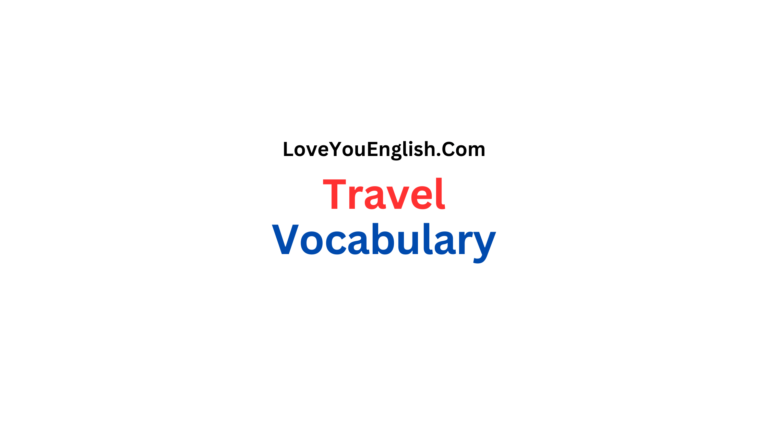30 Descriptive Words in English Explained Simply
Hello everyone,
Words that describe things, people, places, and ideas are called descriptive words or adjectives.
These words help make your writing and speaking more interesting and vivid.
Let’s explore 30 common descriptive words you can use in English to make your language more colorful!
Big
This word means of large size or scale.
Some examples:
- That big truck is blocking the street.
- She caught a big fish while fishing at the lake.
- We live in a big city with over 1 million people.
Small
The opposite of big, small means little in size.
For instance:
- Be careful not to lose that small key.
- The small puppy was so cute and playful.
- We only have a small backyard at our house.
Happy
This positive word describes feeling joyful, glad, or pleased.
You could say:
- She has a big happy smile on her face.
- The kids were so happy to get new toys.
- I’m happy you enjoyed the movie too.
Sad
The opposite of happy, sad means feeling sorrow, unhappiness, or grief.
Examples:
- Don’t be sad, things will get better soon.
- It’s a sad day when someone you love passes away.
- The sad movie made me cry at the end.
Fast
Something that is fast means it moves or happens at a high speed.
Like:
- The fastest runner won the race easily.
- My computer is too slow, I need a faster one.
- The fast train gets you there in just 2 hours.
Slow
In contrast, slow means lacking speed or happening gradually over time.
For instance:
- Traffic was moving so slow during rush hour.
- The slow cooker made a delicious stew.
- Learning a new language can be a slow process.
Hot
This describes a high degree of heat or temperature.
You could say:
- Be careful, that oven is very hot!
- We went to a hot desert climate on vacation.
- I like to drink hot tea in the morning.
Cold
The opposite of hot, cold means having a low temperature.
Like these examples:
- Don’t forget your coat, it’s cold outside today.
- We kept the drinks cold by adding ice cubes.
- Alaska has extremely cold winters.
Loud
Something that is loud makes a high volume of noise or sound.
For instance:
- The loud thunder scared my dog during the storm.
- The concert was too loud and hurt my ears.
- That loud lawnmower is hard to talk over.
Quiet
In contrast, quiet refers to an absence of much noise or sound.
You could say:
- Please be quiet, the baby is sleeping.
- I enjoy the quiet peacefulness of being in nature.
- The library is meant to be a quiet place to study.
Bright
This positive word means giving off or reflecting a lot of light.
Like:
- The bright sun hurts my eyes in the morning.
- We used bright lamps to light up the room.
- Her smile is so bright and cheerful.
Dark
The opposite of bright, dark refers to an absence or deficiency of light.
Examples:
- I’m afraid of the dark, it scares me.
- We got lost hiking after it became dark outside.
- Put on a light, this room is too dark.
Tall
Something that is tall means it extends a long distance upwards.
For instance:
- Giraffes are the tallest animals on Earth.
- He’s so tall, he can easily reach that high shelf.
- The tall pine trees towered over the cabin.
Short
Short is the opposite of tall, referring to little height or brief length:
- He may be short, but he’s a great basketball player.
- My hair is too short, I need to grow it out longer.
- Take the short path to get there faster.
Clean
This positive word refers to being free of dirt, stains, or other unwanted matter:
- Please keep your room clean and organized.
- I love the smell of clean laundry fresh from the dryer.
- We went to a very clean restaurant for dinner.
Dirty
In contrast, dirty means having impurities or being unclean or soiled, like:
- Don’t wear those dirty shoes in the house!
- The mechanics got dirty working on cars all day.
- After gardening, her hands were dirty from the soil.
New
Something that is new means it has existed for only a short time or was recently made:
- We just bought a new car to replace our old one.
- I got a new haircut that makes me look younger.
- There are lots of new movies coming out this summer.
Old
The opposite of new, old means having existed for a long time or no longer fresh:
- My grandparents live in a very old house from the 1800s.
- You can’t wear those old, ripped jeans anymore.
- Let’s get rid of this old furniture and buy new pieces.
Good
Good is a positive word meaning having desirable or positive qualities:
- That was a really good book, I couldn’t put it down!
- She is such a good student who gets excellent grades.
- Eating good nutritious foods is important for health.
Bad
In contrast, bad indicates something has undesirable or negative qualities:
- That movie had such a bad ending, I hated it.
- Smoking is a very bad habit you should quit.
- We got caught in some bad weather during our hike.
Beautiful
This positive descriptive word means extremely attractive or pleasing:
- The beautiful sunset was breathtaking.
- She looked so beautiful all dressed up for prom night.
- We visited some beautiful scenic places on vacation.
Ugly
The opposite of beautiful, ugly refers to something unpleasant or unsightly:
- That bright orange shirt is an ugly color on you.
- Don’t say mean things, that’s an ugly way to talk.
- The graffiti made that building look so ugly.
Smart
Someone or something that is smart shows a high degree of intelligence:
- You’ll have to study to do well, this test is very smart.
- My smart phone can do all kinds of cool things.
- She’s the smartest student and top of her class.
Dumb
In contrast, dumb indicates a lack of intelligence or good judgment:
- Saying dumb things will make people think you’re not smart.
- That was such a dumb decision, I can’t believe you did that!
- The dumb characters made that comedy movie so funny.
Funny
Something that is funny causes laughter or amusement:
- That comedian told the funniest jokes all night.
- He has a great funny personality that always cheers me up.
- The funny scenes in that movie made me laugh out loud.
Boring
Boring is the opposite of funny, meaning not interesting or engaging:
- I was so bored doing nothing but chores all weekend.
- Don’t tell me another one of your boring stories!
- That boring lecture put half the class to sleep.
Exciting
This positive word means causing feelings of enthusiasm and eagerness:
- Going to the amusement park was such an exciting day!
- I get too excited waiting for big events like my birthday.
- That was the most exciting game I’ve ever been to.
Scary
In contrast, scary means causing fright or terror:
- Don’t tell scary ghost stories, you’ll give me nightmares!
- That was the scariest horror movie I’ve ever watched.
- Her scary Halloween costume made me jump in fear.
Strong
Something that is strong has great physical power or endurance:
- You’ll need to be strong to lift all those heavy boxes.
- After lots of workouts, his muscles became very strong.
- They used strong rope to secure the heavy load.
Weak
Finally, weak indicates lacking physical strength or force:
- Don’t lift anything too heavy if your arms feel weak.
- The weak wooden chair couldn’t hold much weight.
- I felt so weak and tired after being sick with the flu.
I hope these 30 descriptive words and their examples help you describe people, things, and experiences in a more vivid and interesting way!
Using a rich vocabulary with adjectives like these makes your English speaking and writing much more colorful.
Have fun practicing these new descriptive words.

